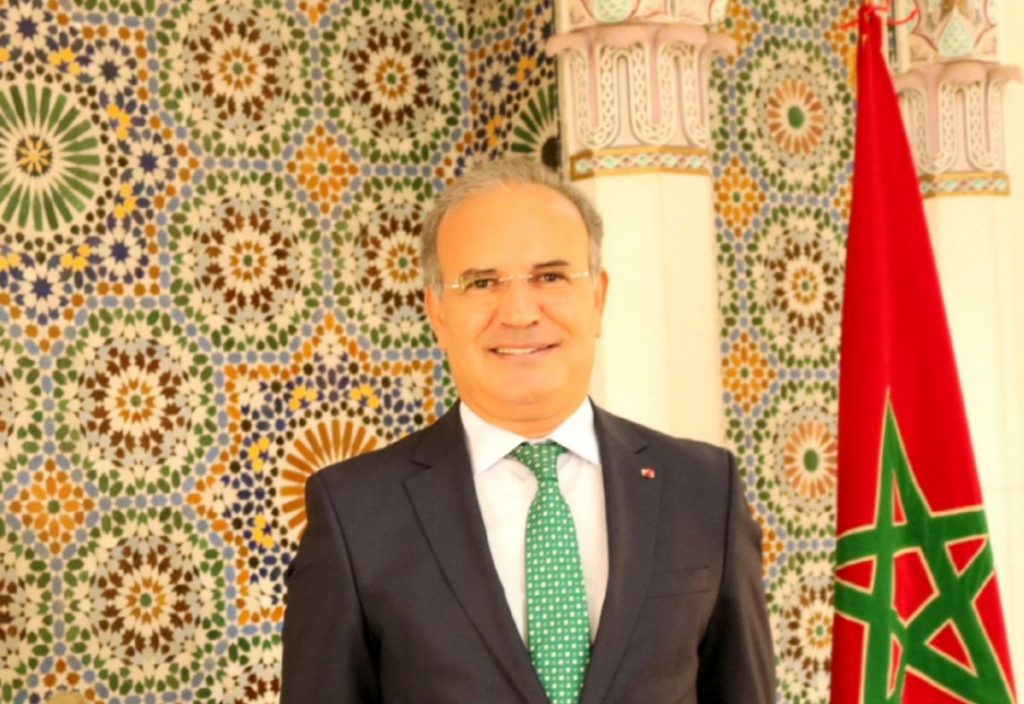São Paulo – Just like in every other country in the world, Morocco’s economy is under the impact of the new coronavirus pandemic. The travel, automobile and textile industries are struggling the most. Morocco’s ambassador to Brasília, Nabil Adghoghi (picture above), discussed the situation with ANBA and said trade with Brazil is unaffected.
According to Adghoghi, one of the fastest-growing Moroccan industries was carmaking. Now, activity has come to a halt. Last year saw 400,000 vehicles shipped from Morocco, fetching USD 7 billion. “The goal was to see a million vehicles in 2022, but that is unlikely, because the industry has taken a really bad hit,” he said.
Another industry in a standstill is tourism. “We get about 12 to 13 million tourists a year, mainly from the European Union. But sadly, this shutdown means the industry is virtually idle. There are no more tourists to speak of. We would get about 50,000 tourists from Brazil, and about three weeks ago Royal Air Maroc [the Moroccan airline] stopped flying to São Paulo and Rio de Janeiro. Brazilian citizens who were in Morocco have already returned home,” the ambassador said.
According to Adghoghi, Morocco’s textile industry – which employs some 160,000 people – is also almost completely still due to Covid-19. “This is a very vibrant industry, and it’s struggling, because it gets raw material from China, and foreign demand has also plummeted, especially in the United States and Europe,” he explained.
Brazil
Aside from the impact on tourism, Brazil-Morocco trade is going on as usual. Fertilizers are Morocco’s top-selling items to Brazil.
“The demand for fertilizers such as phosphorus and potassium hasn’t gone down, because these are medium-term contracts. We have seen no impact on that for the time being. Agricultural activity in Brazil is going on as usual,” said Adghoghi.
And Brazil’s sales of commodities like sugar, soy, coffee and animal protein to Morocco are also unchanged, according to the ambassador.
Set of measures
The Moroccan administration is putting in place a set of measures to address the situation. According to the ambassador, priority number one is sanitation. In other words, the government is working to outfit hospitals so they can take care of people.
“Priority number two is the social aspect. The government is covering part of workers’ wages and assisting informal workers,” said Adghoghi.
Priority number three is the economy. The ambassador explains that the Central Bank has cut down interest. A three-month grace period on rent and loan payments is also in place, among other things.
“This is a package of urgent measures to inject currency into the economy, to provide a financial cushion for the lockdown, because the administration can’t tell people to stay home if it won’t give them an income and food,” the ambassador argued. “These measures are designed to ensure that businesses are viable. You need to keep the national economic and business fabric alive. This will all be overcome soon,” he said.
Translated by Gabriel Pomerancblum




